Of all the nature parks in Utah, few match the breathtaking beauty of Arches National Park and its surroundings. Scenic formations of red rock, wide-open views of the desert, more than 2,000 naturally formed stone arches, and a blend of geology, and adventure combine to make it one of the more special places on earth.

Why Utah? It has to do with the one-of-a-kind geological background and environment of the state. It consists mostly of sedimentary rocks, mainly sandstone, limestone, and shale, which are soft and fine-grained. These rocks have been laid down and eroded over millions of years and provide the perfect landscape for the appearance of canyons and arches.
We are not enthusiastic hikers or photographers, yet a few friends interested in discovering nature's wonders. Equipped with walking sticks, bottled water, and any essential gear, join us as we explore these hidden gems, towering arches, and wild canyons that make this place unforgettable..
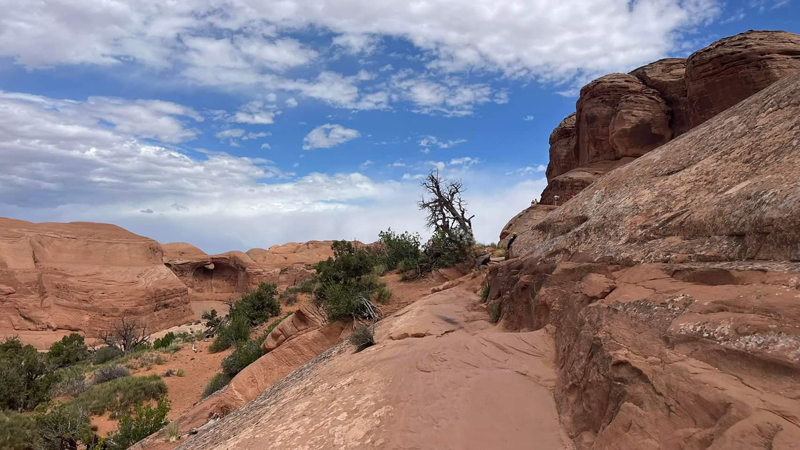
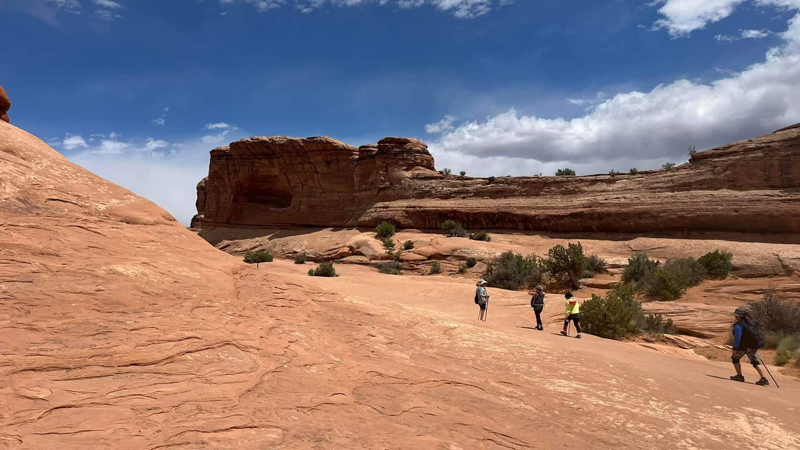
Arches National Park
A breathtaking natural beauty, Arches National Park lies in Eastern Utah. Spread over more than 76,000 acres of desert, the park boasts an incredible collection of more than 2,000 naturally occurring sandstone arches-more than anywhere else in the world.
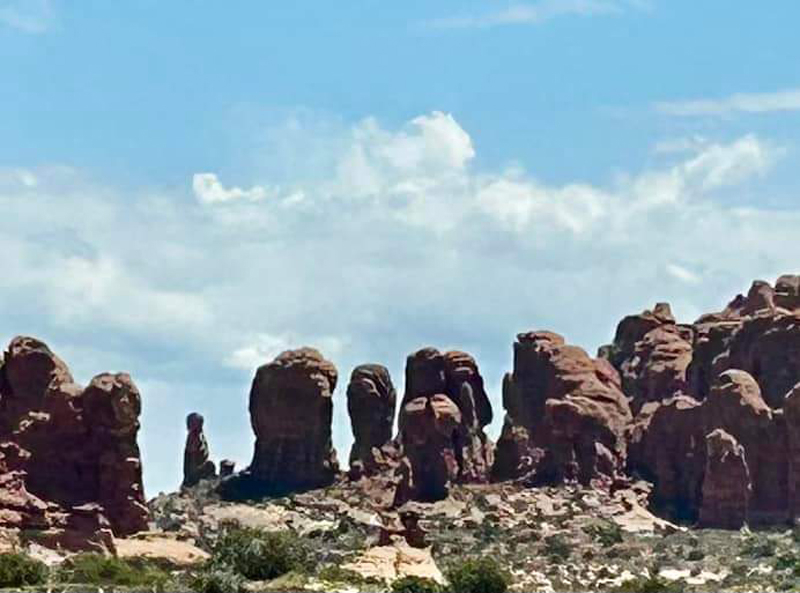
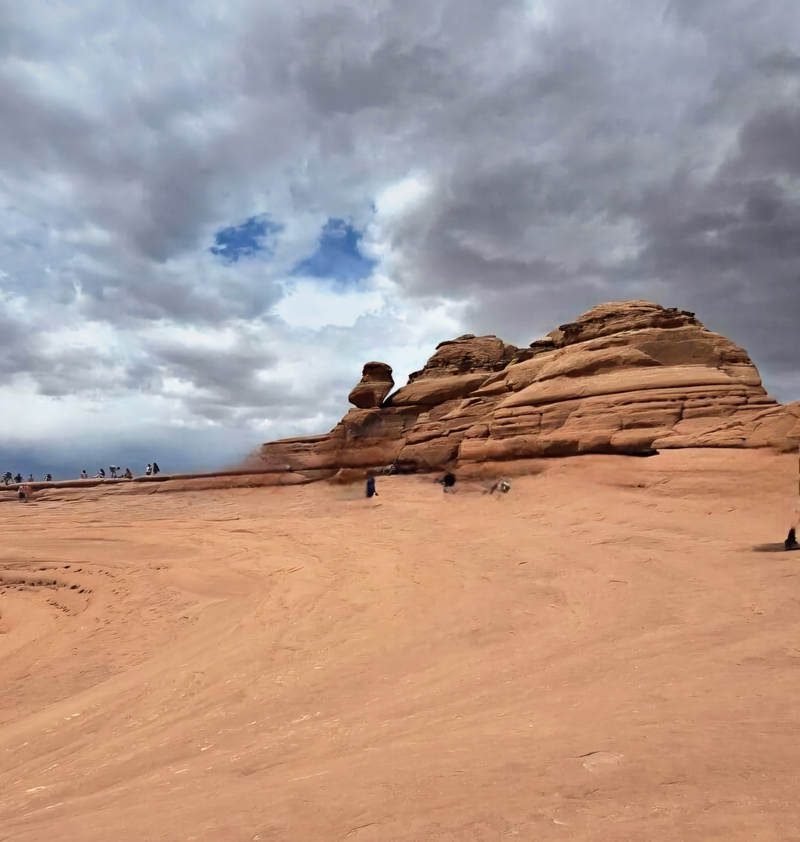
The bright red and orange tints of the rocks contrast amazingly with the blue sky and the surrounding desert landscape.
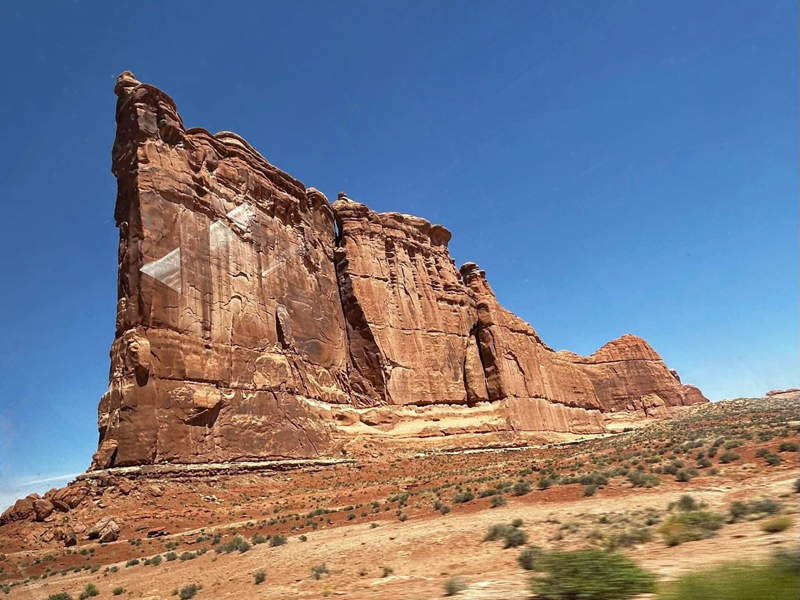
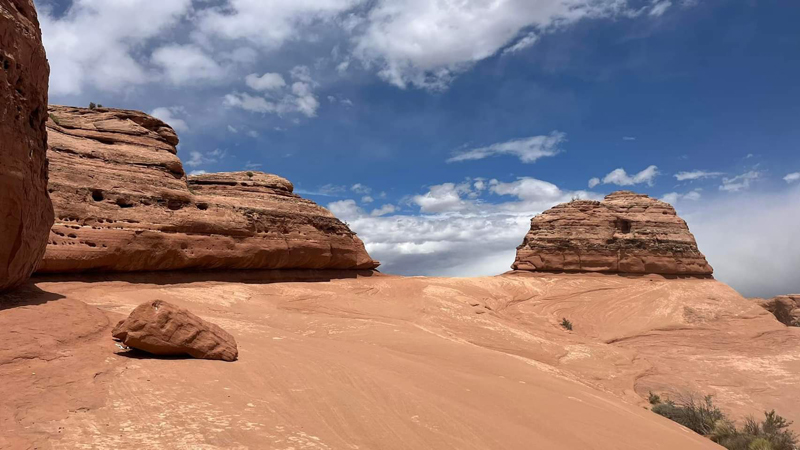
Delicate Arch
This 52-foot tall, freestanding sandstone arch has been sculpted over millions of years through weathering and erosion and is probably the most famous landmark in Arches National Park.
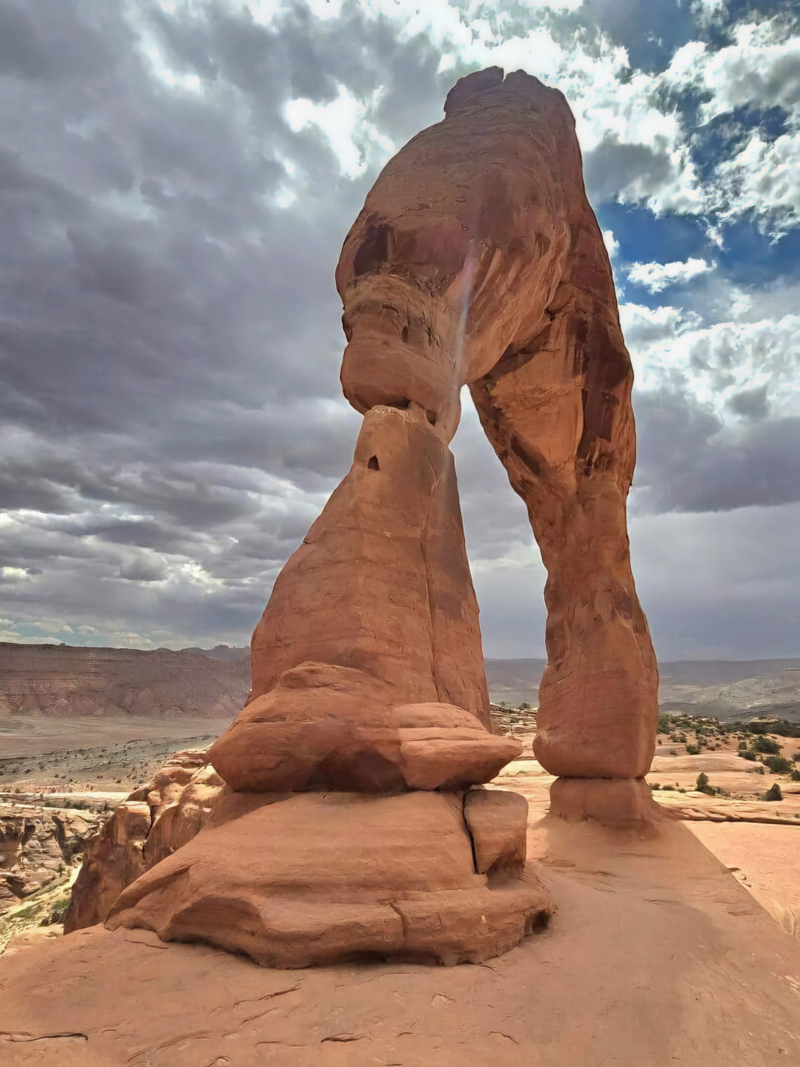
Delicate Arch impresses with its harmonious, smooth shape. A pretty easy hike to get closer, by the way, we were able to enjoy its beauty up close.
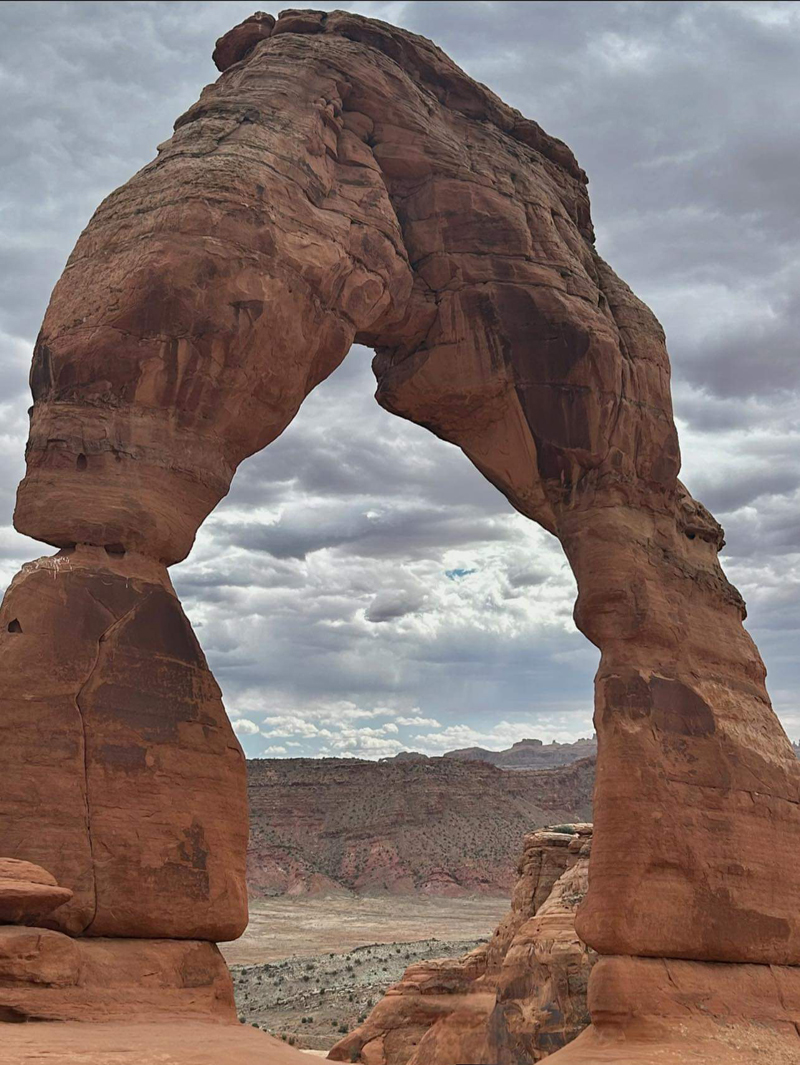
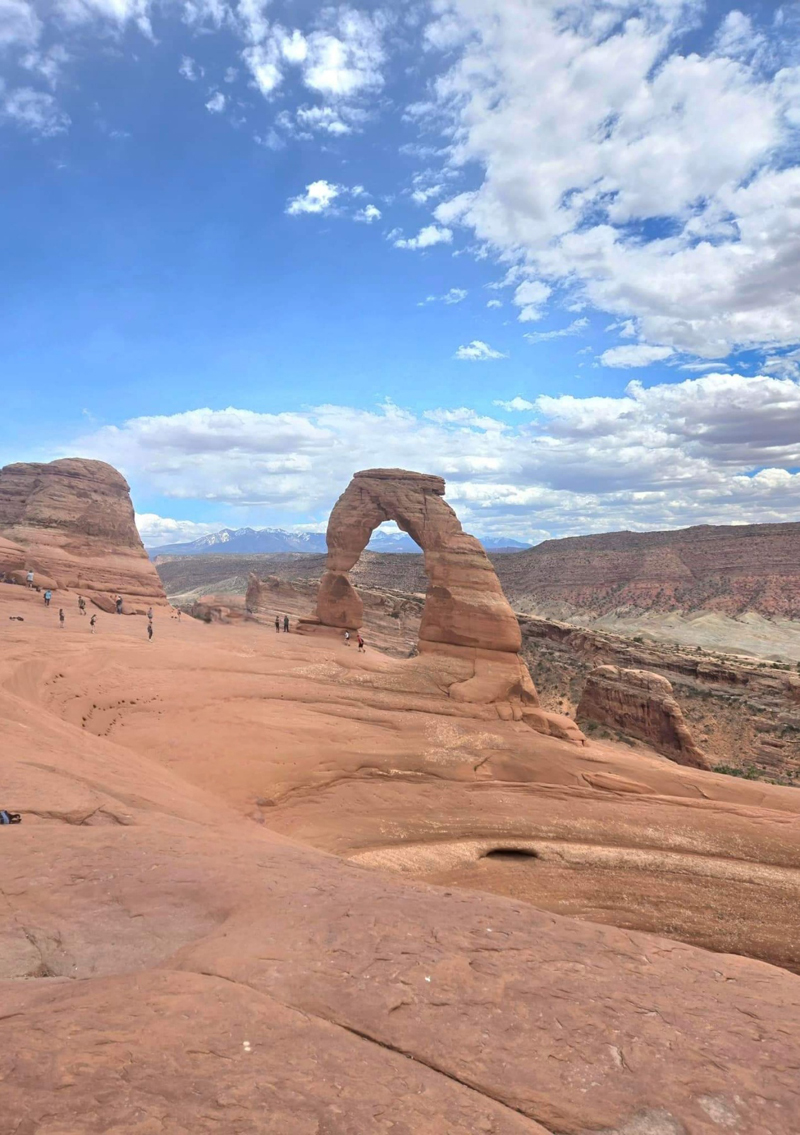
Balanced Rock
While not an arch, it is a well-known landmark.
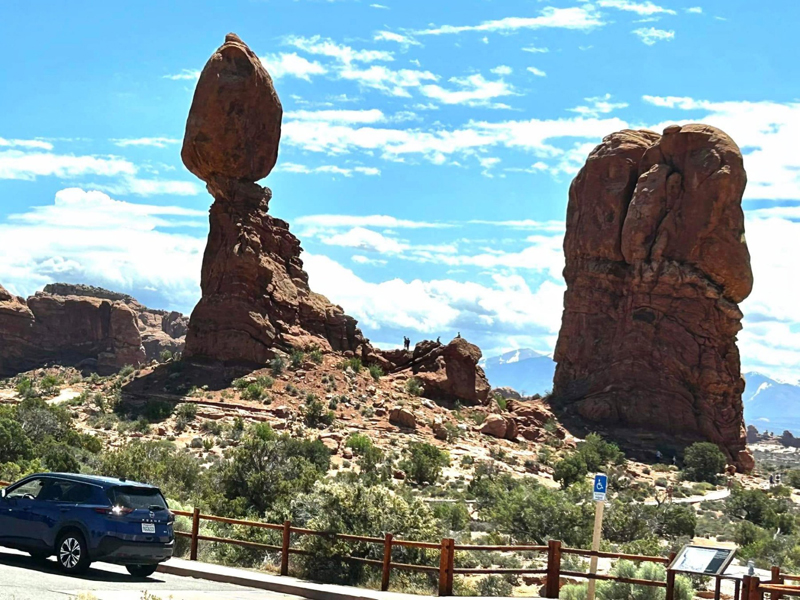
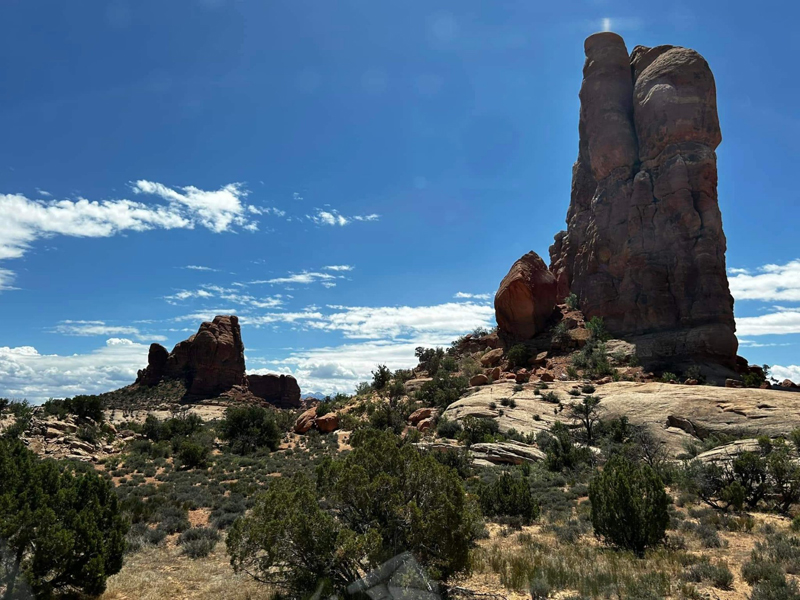.jpg)
Tower Arch
It is striking but less visited than other of the park's more famous arches; it has an enormous size and spectacular surroundings. It stands in a quiet spot for those content to step a little off from the primary attractions.
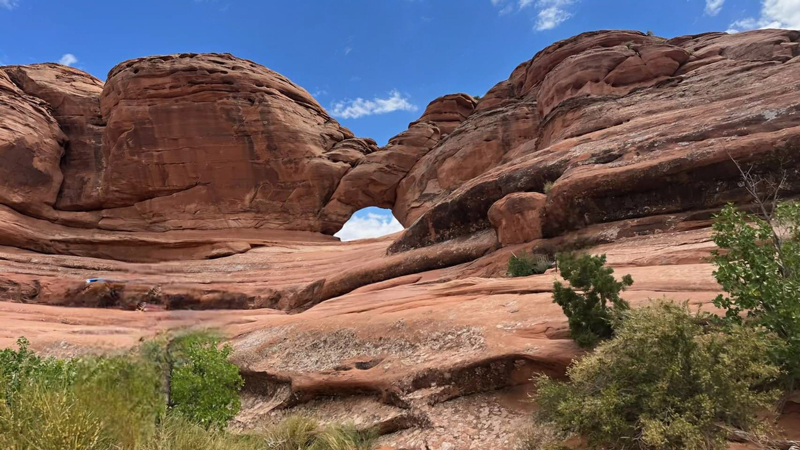
The Pickle
This is a climbing route atop a park rock formation. The name is derived from the appearance of the rock, resembling that of a cucumber or a pickle. Because of its peculiar shape, climbers and tourists consider it a notable landmark.
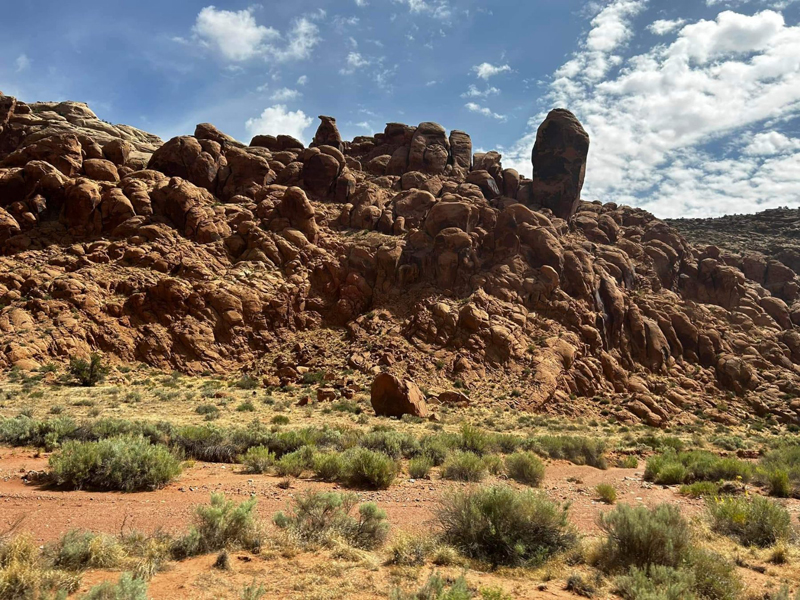
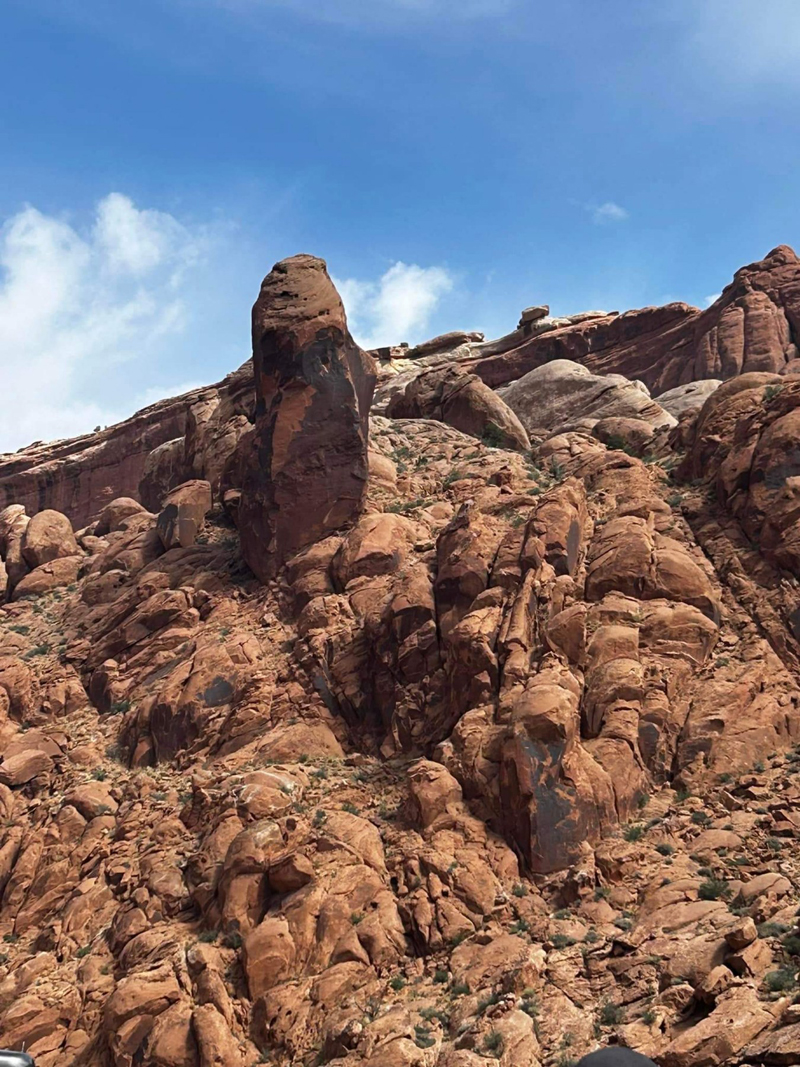
Canyons
Bryce Canyon
What makes Bryce Canyon different from the rest is the peculiar geological features that it has, known as the hoodoos-tall, thin spires of rock erupting from the bottom of the canyon, forming an almost extraterrestrial landscape. Bryce is made of natural amphitheaters.
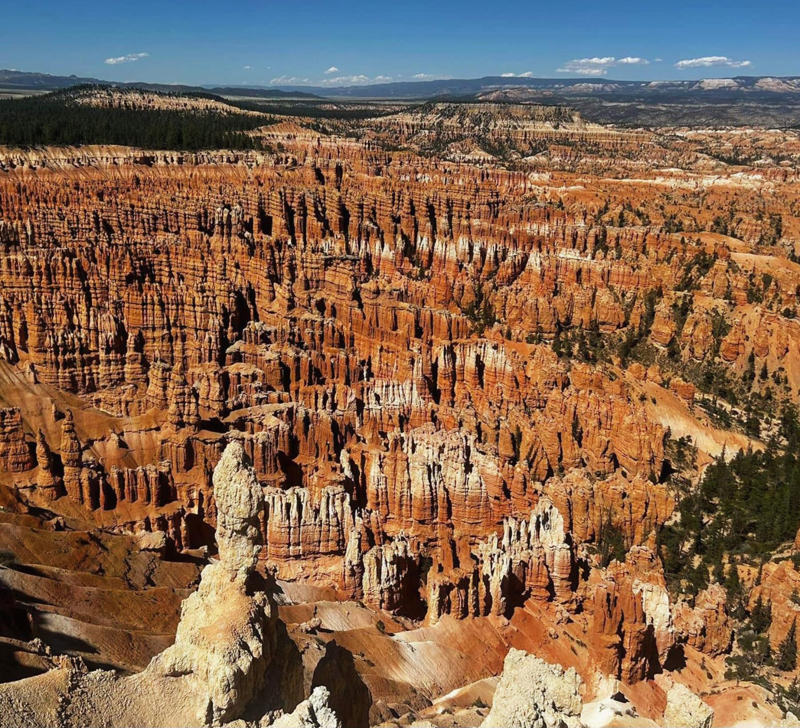
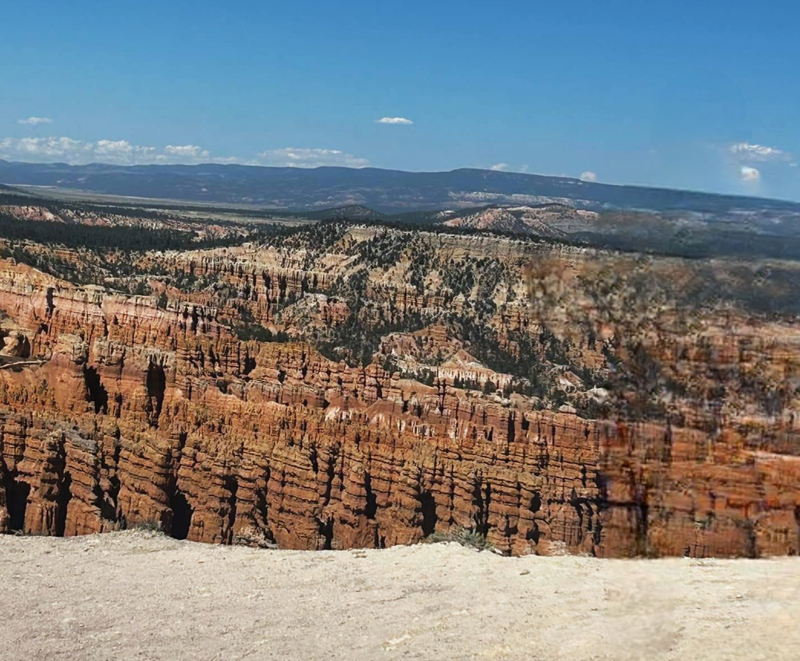
They range from towering 200 feet high to a far lesser size. They also form enormous, blocky columns and have complex textures and patterns that are the result of the uneven erosion of different rock layers.
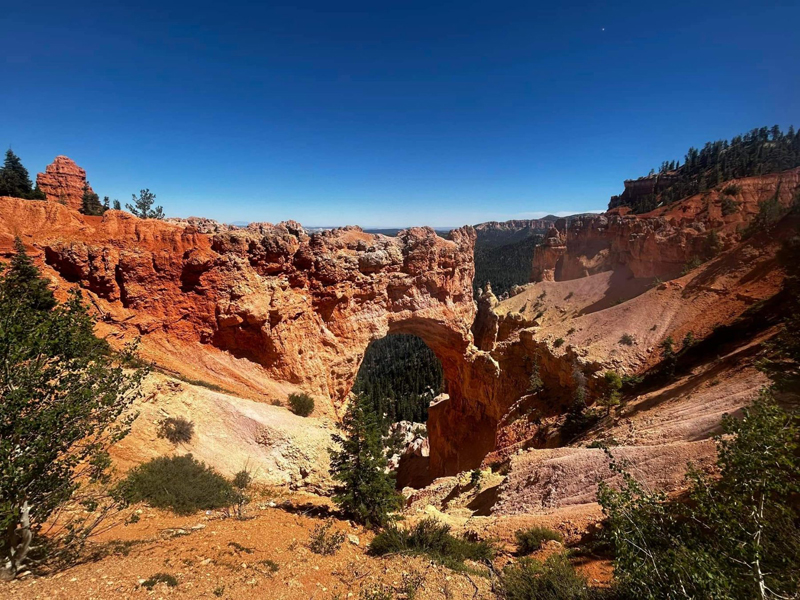
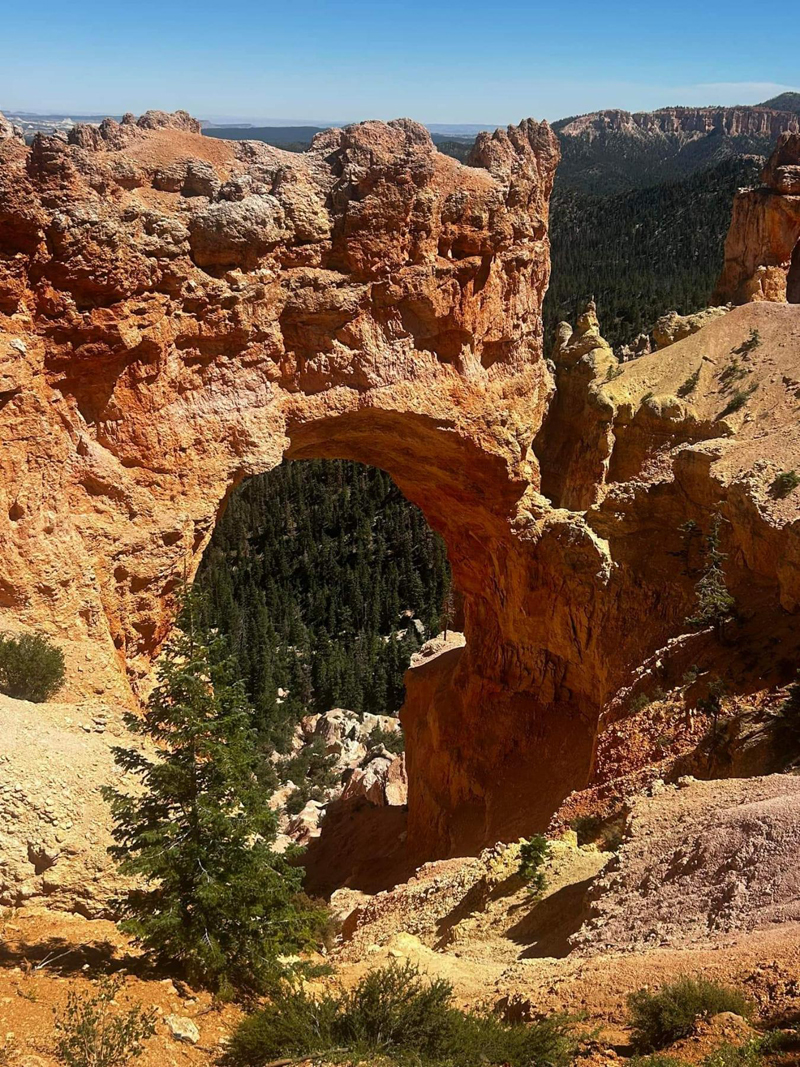
Black Birch Canyon
Black Birch Canyon at Bryce Canyon National Park is so much calmer and unobtrusive in its beauty compared to other vistas. Red-and-orange-colored rocks rise and stretch along the horizon, striking in contrast to the blue of the sky. Pine trees and other high-desert plants dot the landscape, giving a dramatic yet pleasing balance between the softer greens of the trees and the rough rock formations.
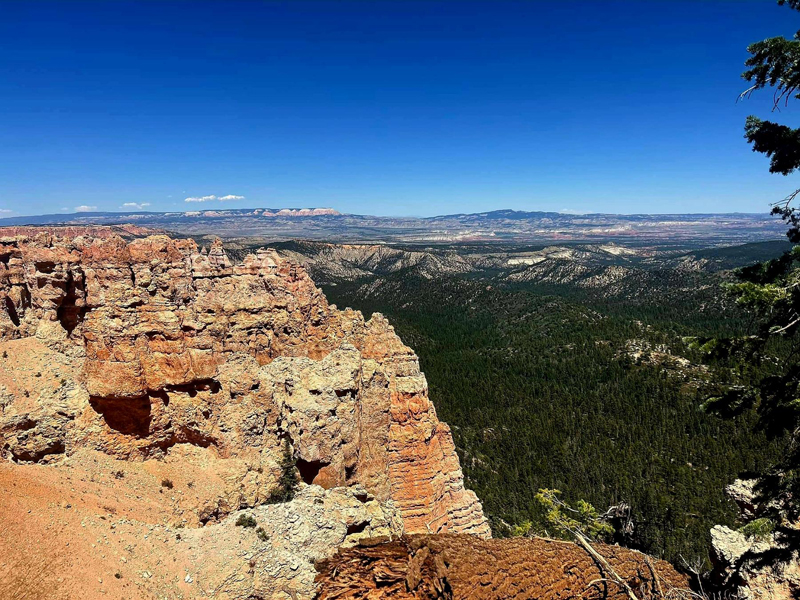
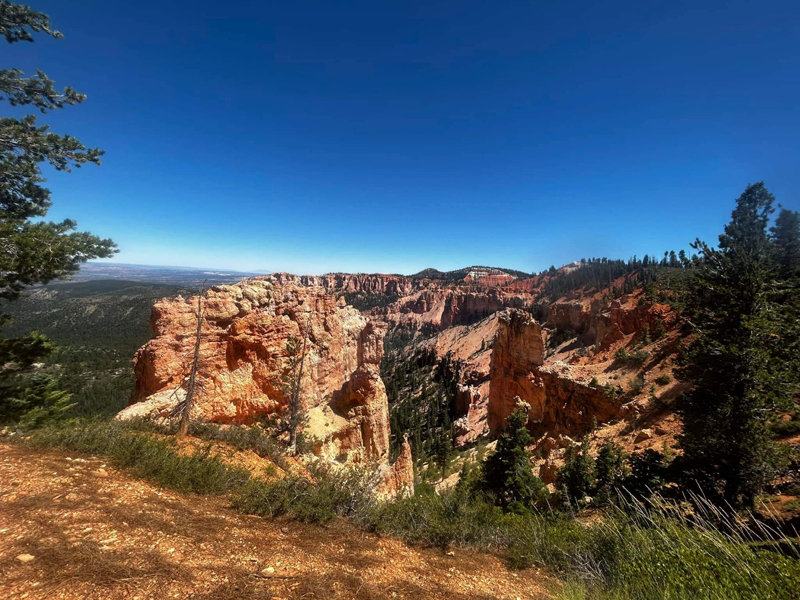
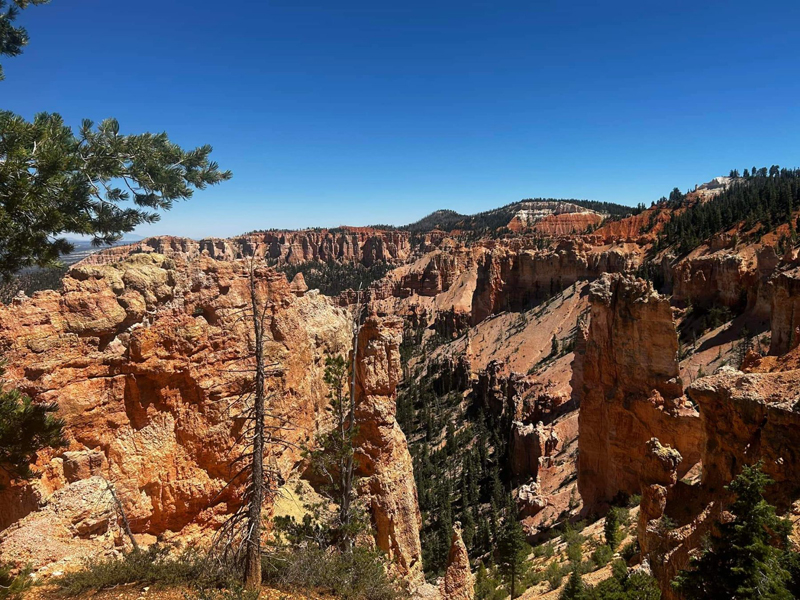
Our trip is one of the best. I am in awe of nature’s strength by the arches, the stunning cliffs, and the canyons that have stood here for millions of years.